Have you ever wondered how much airlines are reimbursed when you redeem miles for a first or business class ticket? I want to address that in this post, because it’s probably not as much as you’d expect.
In this post:
The fascinating economics of airline award seats
It goes without saying that airline loyalty programs have evolved over the decades. When American AAdvantage was founded well over 40 years ago, the intent was to reward travelers in order to encourage loyalty. So making award seats available for travelers was simply a cost of doing business, as those seats went directly to American’s best customers.
That concept has changed significantly over the years:
- Nowadays we have airline alliances and partnerships, so often it’s possible to redeem your miles with one airline loyalty program for travel on dozens of airlines
- Many airlines have gotten into the business of selling miles, which can be lucrative
- Nowadays a majority of miles are issued through non-flying means, and many people rack up oodles of miles using credit cards; this includes both airline co-branded credit cards and transferable points currencies
- For airlines in the United States, loyalty programs have largely become the most lucrative, high-margin aspects of their businesses
So I’m sure I’m not the only one who has wondered “if I transfer my Amex points to Air Canada Aeroplan for a redemption in Lufthansa first class, how much money changes hands?”
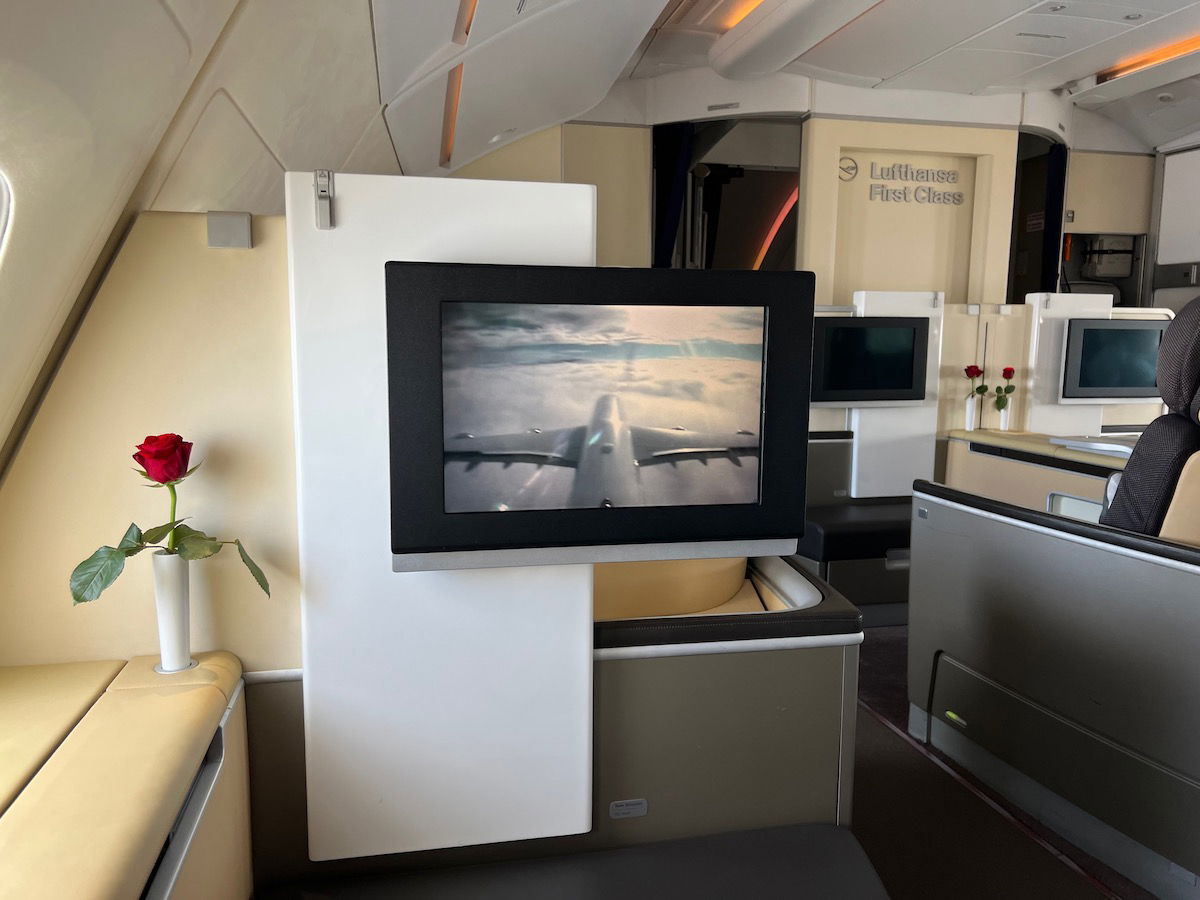
Basics of airline award ticket reimbursement
When you redeem United MileagePlus miles for travel on United, that comes down to an internal accounting exercise. In this post I’m focused specifically on redeeming miles for travel on a partner airline, which is often how you get the best value when redeeming miles (like redeeming United MileagePlus miles for travel on Austrian, for example).
Let me provide some general guidelines about what I’ve been able to figure out with award ticket reimbursement. I should mention that policies differ between airlines, so there’s no “one size fits all” answer. This won’t always be the case, but generally speaking:
- Airline reimbursement rates for awards are on a per segment basis, regardless of whether you’re booking a segment individually or as part of a larger itinerary
- Award reimbursement rates are generally negotiated individually between airlines; in other words, not all Star Alliance airlines will pay the same amount for the same redemption, and for that matter, the cost can be very different between airlines
- Airline award ticket reimbursement is largely (but not always) an accounting exercise — airlines generally hope that there will be some parity with redemptions between airlines, so hopefully at the end of an accounting cycle just a small check is written
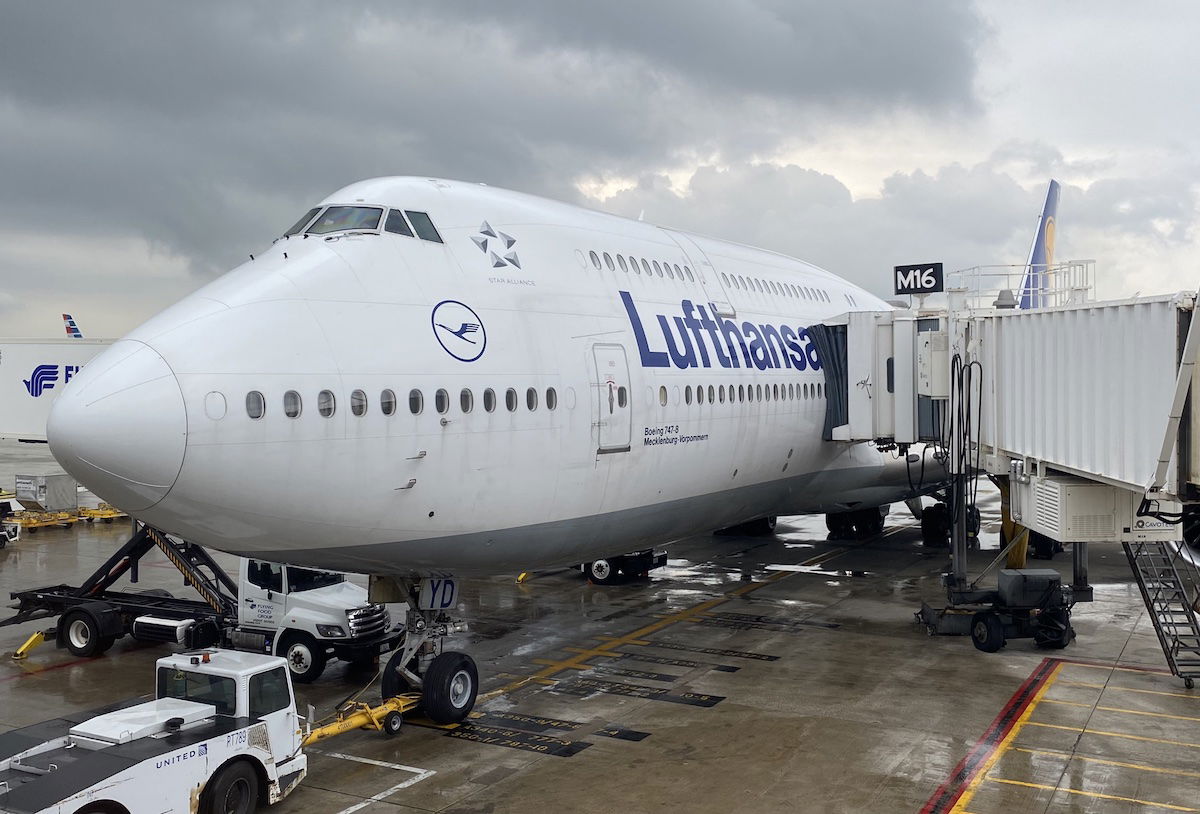
How much airlines pay for award tickets
Back in 2013, I shared some Star Alliance award ticket reimbursement rates that I had gotten my hands on. Here’s what those amounts look like, each for one-way travel on a single segment:
- Singapore to Bangkok in Singapore Airlines business class costs ~$35
- Frankfurt to Vienna in Austrian business class costs ~$50
- Istanbul to Tokyo in Turkish business class costs ~$250
- Tokyo to Bangkok in Thai first class costs ~$250
- Vienna to Bangkok in Austrian business class costs ~$300
- Washington to Brussels in Brussels Airlines business class costs ~$300
- Warsaw to New York in LOT Polish business class costs ~$350
- New York to Tokyo in All Nippon Airways first class costs ~$450
- Los Angeles to Frankfurt in Lufthansa first class costs ~$1,000
Obviously there’s some variability based on the program you’re booking through, and I also imagine that prices have changed quite a bit in the past decade and change. However, this should give you a general sense of what a massive discount these tickets can be for airlines. Yes, prices are definitely higher now to account for inflation (maybe some awards are twice as expensive now), but the concept hasn’t changed.
Chances are that these prices are way lower than you would have expected. There’s also probably more price variability than you’d expect — for example, you wouldn’t think a Los Angeles to Frankfurt award flight in Lufthansa first class would cost more than twice as much as a New York to Tokyo award flight in All Nippon Airways first class.
For those curious, when an airline passes on carrier imposed surcharges (often referred to as fuel surcharges) on award tickets, those typically don’t actually go to the operating carrier, but they’re kept by the frequent flyer program. However, in some cases those airlines may also have higher reimbursement rates for awards. It all depends.
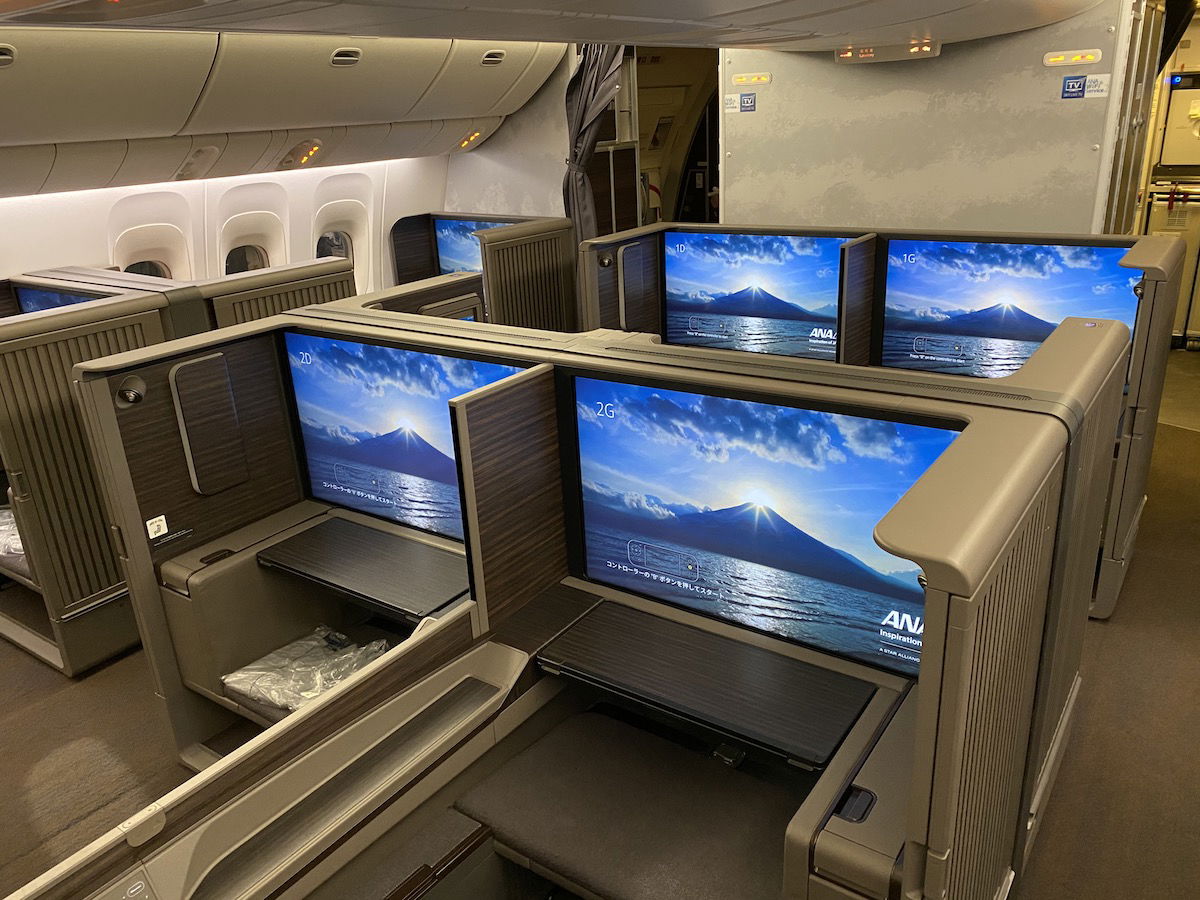
Why do airlines bother releasing award seats to partners?
With how low airline award reimbursement rates are in many cases, you may be wondering why airlines even bother making award seats available to partner airlines. After all, airlines are often getting paid less for business or first class awards than they’d charge for revenue tickets in economy.
What’s the logic? First of all, it’s worth keeping in mind that many airlines have changed how they go about releasing award seats to partner programs:
- Air France first class awards and SWISS first class awards aren’t available to anyone through a partner frequent flyer program, and are even restricted to select elite tiers
- Emirates first class awards aren’t available to most partner programs, and Lufthansa first class awards are available to partner programs at most several days before departure
- Singapore Airlines only makes most long haul first and business class awards available to members of its own KrisFlyer program
- Airlines are increasingly restricting award availability to members of their own programs, and not making them available to members of partner programs; you’ll notice this on airlines like Cathay Pacific, Etihad Airways, Qatar Airways, and many more
- We now sometimes see airlines release non-saver award availability to partners at higher award costs (this is common with Alaska Mileage Plan), and in those situations, frequent flyer programs are paying a lot more for access to more award seats, and the pricing reflects that
This all makes sense, as presumably airlines see limited upside to being generous to members of partner programs, rather than to members of their own program.
Still, why do other airlines pretty regularly make award seats available to partner programs?
- Generally airlines only make saver award seats available in situations where they don’t anticipate flights being full, and in most cases the reimbursement rates are still higher than the marginal cost of carrying an additional passenger
- Presumably many airlines just do it out of goodwill, and to honor the spirit of the major alliances, since they expect the same reciprocity from other airlines
- Some airlines view award passengers from other airlines as potential future customers who could pay for tickets; for example, I’m sure an American frequent flyer who flies Qatar Airways Qsuites may be inclined to book the airline on a future business trip
- I imagine some airlines just haven’t put much thought into it, and/or don’t want to invest in systems that allow them to better differentiate award availability
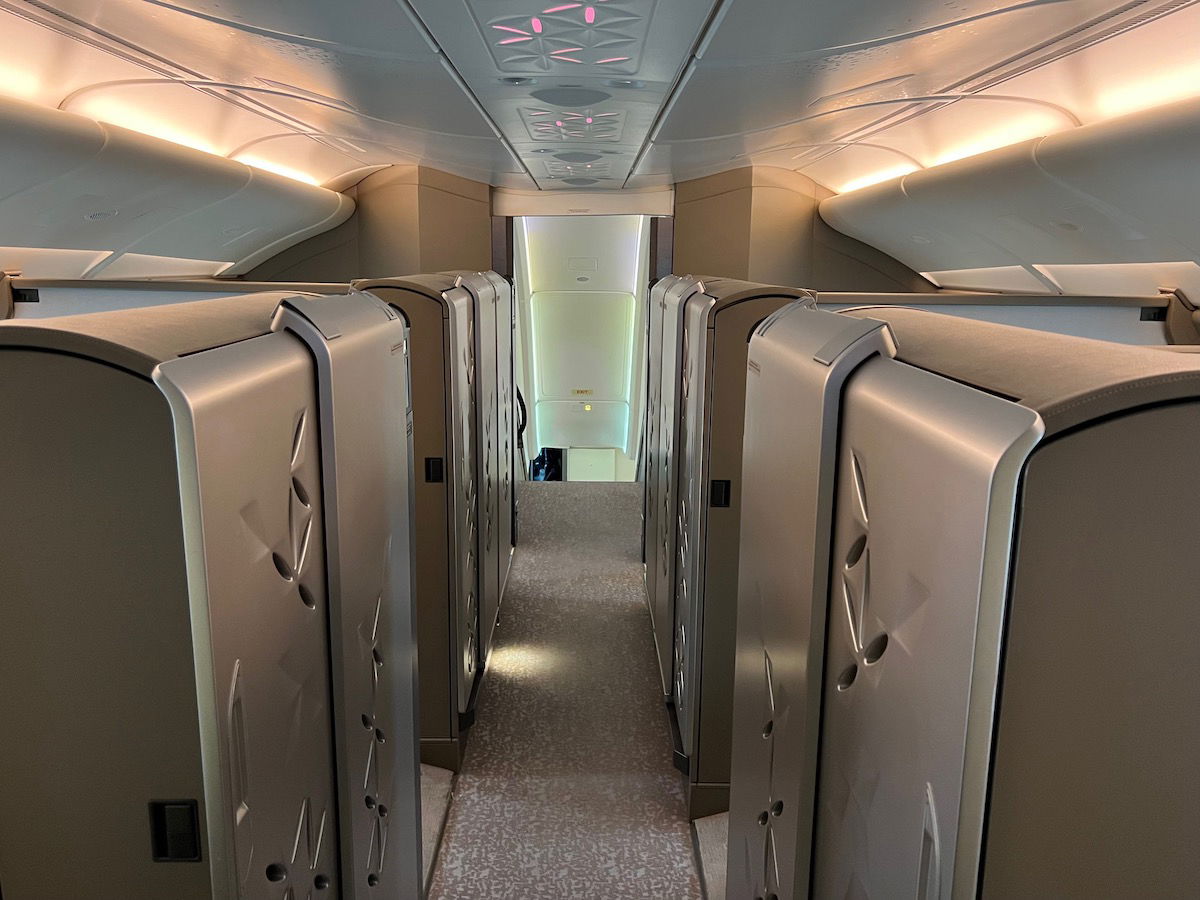
Bottom line
Airline loyalty programs are massive businesses, and in particular I find the economics of award tickets to be interesting. This is especially true when you consider how many miles are earned either through credit cards, or by just buying them outright from a loyalty program when there’s a sale.
The economics of acquiring miles makes a lot more sense when you consider the low costs associated with redemptions (in most cases). The bigger question is why the reimbursement rates continue to be so low.
If anyone in the know would like to (anonymously) share any updated numbers, by all means reach out! Lastly, while the concept is a bit different, if you’re curious about how hotels are paid for award stays, see this post.
What’s your take on airline reimbursement rates for awards?
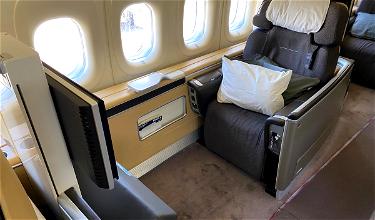

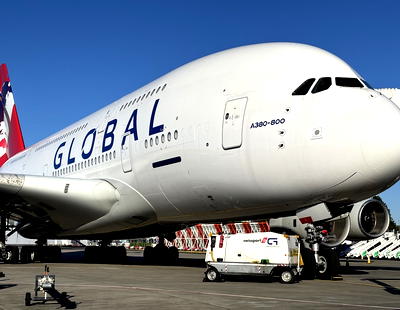
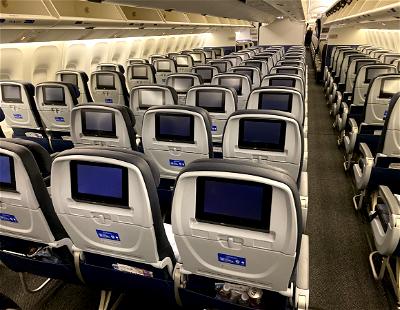
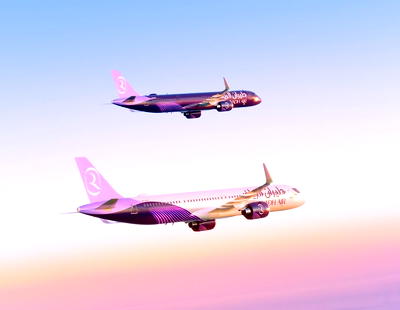
I wonder what are some international economy rates for transatlantic and transpacific.
Hi Ben. You advised us to reach out with details, but what is the best way to reach you.
I saw there’s a sort of message board that will “be reviewed” but not sure if that’s still the case. Send an email? Another way?
Was explaining all this to my 13yo daughter today . Well. How I see it at least.
Business cabin has 20 seats and sells 10 to business people and 2 to high net worth leisure travelers. Inelasatic travelers who will pay $10k for syd to nyc. But the other 8 seats probably don’t get a bite until they’re offered for say $3-4k which would cannibalise the other seats. So airlines “sell” them via points...
Was explaining all this to my 13yo daughter today . Well. How I see it at least.
Business cabin has 20 seats and sells 10 to business people and 2 to high net worth leisure travelers. Inelasatic travelers who will pay $10k for syd to nyc. But the other 8 seats probably don’t get a bite until they’re offered for say $3-4k which would cannibalise the other seats. So airlines “sell” them via points and buying points etc. business people don’t want them because it’s inflexible and hard to come by. They want to fly out for example Tuesday night and back Saturday morning. Points travelers can do last minute and fly any time over a week (if they truly know what they are doing).
How nice of you to teach a 13yo about econ.
Can't wait for you to teach her roles of government.
How out of those 20 seats 1 needs to be reserved for a cop, 3 more are for foreign aid.
You can't sell it to certain people because they were sanctioned by your government.
You have to charge an extra $5k tariff because foreign airlines have more seats.
You can't merge with...
How nice of you to teach a 13yo about econ.
Can't wait for you to teach her roles of government.
How out of those 20 seats 1 needs to be reserved for a cop, 3 more are for foreign aid.
You can't sell it to certain people because they were sanctioned by your government.
You have to charge an extra $5k tariff because foreign airlines have more seats.
You can't merge with your not competing business in a different market because you'll make the price higher, now they're bankrupt and the prices are still higher.
But they are also the same people who turned a blind eye and 2 planes plus 1 door fall out of the sky with little accountability.
Who needs econ lessons when authority can override free market and cover it up with propaganda.
This statement really should read:
"Singapore Airlines only makes most long haul first and business class awards available to members of [Air Canada Aeroplan] and its own KrisFlyer program"
Many times Aeroplan has better award availability than Krisflyer.
At this moment LH group award availability for J and F in 2025 is surprisingly limited. Rewarding loyal customers? Well...
Someone in a reply mentioned that people would “not likely” redeem points for train travel.
Amtrak in the US operates its own loyalty program (Amtrak Guest Rewards/AGR), and many of the larger intercity rail services in Europe have loyalty programs as well.
At least as far as Amtrak is concerned, if a passenger books a ticket on points, the reservation system assigns a specific “discount” code to whatever the paid fare is at the time...
Someone in a reply mentioned that people would “not likely” redeem points for train travel.
Amtrak in the US operates its own loyalty program (Amtrak Guest Rewards/AGR), and many of the larger intercity rail services in Europe have loyalty programs as well.
At least as far as Amtrak is concerned, if a passenger books a ticket on points, the reservation system assigns a specific “discount” code to whatever the paid fare is at the time of booking (I do not know the formula). That fare is the amount paid internally by the loyalty program to Amtrak so the revenue is captured properly and attributed correctly to the appropriate route. It’s both part of ticket agent training and it states in the “back side” of points redemption reservations to never share that dollar value with a passenger. With that said, one could presumably submit an FOIA request for all the financial details.
Up until circa 2016, the program was based on geographic zones but transitioned to dynamic pricing. There’s a map here:
https://onecarryon.com/blog/2015/8/maximize-rewards-points
Much like with airlines, most people redeeming AGR do so for what would be considered an aspirational redemption - Acela First Class, long haul Sleeping Car, etc. There are still some very good redemptions for sleepers, especially on higher demand and lower capacity routes.
Airlines continue to offer seats on award miles programs so they must be making money by doing so. Many of these awards are limited to US credit card holders. At some point there will likely be more push back from non US carriers. It seems the peak days of points travel are behind us. I think there will be more pushback limiting points travel. At this point the alternatives come into play. Do I want...
Airlines continue to offer seats on award miles programs so they must be making money by doing so. Many of these awards are limited to US credit card holders. At some point there will likely be more push back from non US carriers. It seems the peak days of points travel are behind us. I think there will be more pushback limiting points travel. At this point the alternatives come into play. Do I want to pay $5000 for a trip to Europe when I know that many/most of the people next to me have either redeemed travel on points or are crew or are travelling on corporate accounts. Not really. Would I pay $3000 for the same flight if I realized it was a level playing field and most are paying similar amounts for the flight. Yes, in a heart beat. How many other travel methods allow or promote travel by points reimbursement. Trains, Not likely. Uber. No. Why is this unique to airlines. I think if the accountants in big airlines do a revenue analysis they might find the elasticity of cash travel is better than they thought. The credit card points schema has been a cash cow for airlines for some time, and they have become lazy. Sometimes ideas or innovations, like a good scheduling program did in the 1980s, offer great competitive advantage. Perhaps something as simple as a transparent cost per seat might be that innovation. Obviously blasphemy to this audience.
credit card programs are worth billions of dollars - DL says it gets $7 billion/year from Amex and believes it can get to $10 billion/year, a number that AA threw out as what its new agreement w/ Citi can generate in a decade.
Yes, airlines make money. they also revenue manage very well. customers have to align their desires to get value from loyalty programs with what the companies allow; there are millions of seats...
credit card programs are worth billions of dollars - DL says it gets $7 billion/year from Amex and believes it can get to $10 billion/year, a number that AA threw out as what its new agreement w/ Citi can generate in a decade.
Yes, airlines make money. they also revenue manage very well. customers have to align their desires to get value from loyalty programs with what the companies allow; there are millions of seats that are redeemed at good rates across the industry - but not necessarily for longhaul international business or first class
I put some info on train loyalty program (well, Amtrak’s anyway) in the main thread for you. It’s more common than you think.
Thanks for the information. I do not live in the US and am not familiar with Amtrak. It seems you can get 20000 points by signing up for one of their credit cards.
If credit card companies and airlines are both making money out of what seems to be a zero sum game, who is the third party footing the bill? Consumers via higher retail prices or the retailers via fees paid credit cards?...
Thanks for the information. I do not live in the US and am not familiar with Amtrak. It seems you can get 20000 points by signing up for one of their credit cards.
If credit card companies and airlines are both making money out of what seems to be a zero sum game, who is the third party footing the bill? Consumers via higher retail prices or the retailers via fees paid credit cards? The money to fund these profits comes from somewhere. It seems there is a part of the puzzle missing in the explanations above. What happens if retailers push back against credit card fees. In my country Amex is not accepted by many businesses because of the fee structure. I still question the long term sustainability of the points for travel scheme. As the number of points for a given flight increases to deflate the points held it takes longer for individuals to accumulate the points which allows for more time for programs to further devaluate their program. Like a dog chasing a car that goes a little faster the closer the dog gets. This scenario is further exacerbated by shrinking availability of rewards seats. Perhaps the domestic US market can sustain this model but international travel using points may not be able to continue as is.
@Dan
It's anything but a zero sum game.
Your biggest misunderstanding is that points model is there for your benefit.
What is the business class product in this picture?
They're all first class cabins (Lufthansa, ANA and Singapore Airlines).
Are you sure? The first one looks like business class.
They are all First class products as per hbilbao. It certainly doesn't look like a business class product.
I believe if the carrier imposed surcharges (YR/YQ) are charged based on the operating carrier's rate (as opposed to a flat fee by the issuing carrier), they do go to the operating carriers.
When FF programs began in the 1980s load factors were in the 60% to 70% range so there would always be empty seats to go around. Other than minimal costs like meals/catering it wasn't really costing airlines anything as likely that seat would have been empty to begin with.
Fast forward to load factors of 90%+ and there are far fewer seats going out empty and a higher chance of losing revenue. Accordingly redemption rates...
When FF programs began in the 1980s load factors were in the 60% to 70% range so there would always be empty seats to go around. Other than minimal costs like meals/catering it wasn't really costing airlines anything as likely that seat would have been empty to begin with.
Fast forward to load factors of 90%+ and there are far fewer seats going out empty and a higher chance of losing revenue. Accordingly redemption rates have gone up. Airlines want to have fewer redemptions and less chance of loss of revenue.
This is a very reasonable take but the problem is that it does not align with the facts. Just 6 months ago, all of these airlines were whining about overcapacity...
https://onemileatatime.com/insights/airline-industry-overcapacity/
https://qz.com/delta-american-united-southwest-spirit-capacity-crisis-1851624344
Delta barely gives upgrades anymore because it claims that they are selling their premium classes consistently. What Delta, and other airlines, do not tell you is that they're selling upgrades at check in at a fraction of the original cost. Delta will rather...
This is a very reasonable take but the problem is that it does not align with the facts. Just 6 months ago, all of these airlines were whining about overcapacity...
https://onemileatatime.com/insights/airline-industry-overcapacity/
https://qz.com/delta-american-united-southwest-spirit-capacity-crisis-1851624344
Delta barely gives upgrades anymore because it claims that they are selling their premium classes consistently. What Delta, and other airlines, do not tell you is that they're selling upgrades at check in at a fraction of the original cost. Delta will rather sell an upgrade to a non-status member for $50 than give that upgrade for free to someone that has spent thousands of dollars with them.
FF programs have become giant ponzi schemes. They love to get that credit card cash upfront every time someone transfers their points but are creating artificial scarcity when it comes time to actually use it. It is the perfect ponzi scheme. They get cash upfront and get to choose when and how you redeem. Earn and burn people!
I would be surprised if the reimbursements remain this simplified today, but the levels are not surprisingly low, as partner remimbursement costs (both rates and volume) ultimately have to jive with issuing carriers' unredeemed mileage liability if they are going to state that accurately on their books.
I suspect limiting partner redemptions, devaluations, award fees, surcharges, etc. all get baked in and can help fine-tune out of pocket discrepancies vs. amortization cost of the carriers'...
I would be surprised if the reimbursements remain this simplified today, but the levels are not surprisingly low, as partner remimbursement costs (both rates and volume) ultimately have to jive with issuing carriers' unredeemed mileage liability if they are going to state that accurately on their books.
I suspect limiting partner redemptions, devaluations, award fees, surcharges, etc. all get baked in and can help fine-tune out of pocket discrepancies vs. amortization cost of the carriers' mileage liability.
LOL, trying to explain this is like explaining quantum physics on a blog.
Then some reader would claim that the self anointed physics guru can't determine if the cat is dead.
But don't worry you can always visualize the cat the way you like or something of that kind! ;)
Another would tell you how profitable a premium cat would be.
Or how British cat is the best and other readers never saw a cat cross the continent before.
a few anecdotal interline reimbursement rates are interesting but they will only apply to those specific markets and carriers just because airlines are sophisticated enough to command the highest possible reimbursement from other carriers to use as little "one size fits all as possible"
I am certain that non-US airlines are increasingly pushing back at the amount of mileage redemptions that are coming from credit card awards which are driven by the higher interchange rates...
a few anecdotal interline reimbursement rates are interesting but they will only apply to those specific markets and carriers just because airlines are sophisticated enough to command the highest possible reimbursement from other carriers to use as little "one size fits all as possible"
I am certain that non-US airlines are increasingly pushing back at the amount of mileage redemptions that are coming from credit card awards which are driven by the higher interchange rates that come from US cards - many countries don't have those levels.
On an incremental basis, airlines can forecast a certain amount of redemption for awards but if they rarely are able to satisfy demand, it creates more customer service work and leads to a bad reputation. A dynamic model works better even if the result is sky-high redemption rates.
I think the pushback is evident in the devaluations/dynamic awards.
The dynamic model (as practiced by AF paticularly) is perplexing as it's common to see a business award SDG-SIN priced at 70,000 miles, with the exact same flight on a day either side priced at 700,000. This is an extreme example but nor uncommon y any means. It is what it is I suppose, and it's dynamic pricing at its most bizzare.
Why is it perplexing?
The expected revenue from the last seat in J can vary from zero (the seat goes unfilled even after offering a cheap upgrade at check-in) to a few hundred dollars (from the cheap upgrade plus whatever they might get for selling the now-open Y/W seat the upgrader vacated) to several thousand dollars if someone buys a flexible last-minute fare.
The 70k mile fare is for a flight where AF is sufficiently...
Why is it perplexing?
The expected revenue from the last seat in J can vary from zero (the seat goes unfilled even after offering a cheap upgrade at check-in) to a few hundred dollars (from the cheap upgrade plus whatever they might get for selling the now-open Y/W seat the upgrader vacated) to several thousand dollars if someone buys a flexible last-minute fare.
The 70k mile fare is for a flight where AF is sufficiently afraid that the first two situations will hold. The 700k fare is for a flight where AF thinks it's virtually nailed on that the last seat would be someone willing to pay thousands in cash.
Giving a seat away a year in advance for $450 when it might sell for $13K cash a few weeks or days before departure doesn't make business sense, especially if the $450 sale is to someone who's never even set foot on one of your aircraft. It makes sense to release seats a couple of days before departure and make some money rather than none, sure, but otherwise I completely understand why partner awards are in danger of extinction.
lower fares should be offered far in advance whether it is for leisure or miles. Airline revenue management is sophisticated enough that airlines know how much low fare activity they need on a flight and offer it in advance rather than at the last minute.
Revenue management has moved on from that, especially in the era (at least originating in North America) where there's now a lot more flexibility embedded in the ticket (e.g. no change fee or even exchanges driven by schedule changes). The current common practice is to keep the fare fairly high early (as those booking more than six months in advance will tend to have some occasion where they have to be there then). Then lower...
Revenue management has moved on from that, especially in the era (at least originating in North America) where there's now a lot more flexibility embedded in the ticket (e.g. no change fee or even exchanges driven by schedule changes). The current common practice is to keep the fare fairly high early (as those booking more than six months in advance will tend to have some occasion where they have to be there then). Then lower fares are opened depending on the sales of those early high fares. While the purchasers of those early fares might change to lower fares, the excess is typically returned as a voucher/time-limited credit and not everyone will change for a lower fare and a residual credit (the earlier bookers are often infrequent flyers, so the credit may not be usable). From about six months out, though, the general pattern is increasing fares, though airlines do that more by having advance purchase requirements rather than through bucketing.
The problem with your analysis is that credit card points are a huge cash cow for airlines - at least as much as selling $13k tickets. Quite a few people already think the whole points game is a scam and choose cash-back credit cards. If award availability shrinks even farther, even more people will walk away from airline credit cards and transferring points from credit cards to airlines. At some point, the airlines know they...
The problem with your analysis is that credit card points are a huge cash cow for airlines - at least as much as selling $13k tickets. Quite a few people already think the whole points game is a scam and choose cash-back credit cards. If award availability shrinks even farther, even more people will walk away from airline credit cards and transferring points from credit cards to airlines. At some point, the airlines know they will kill the goose that's laying the golden eggs. So I think the far-in-advance saver award seat isn't going away permanently, even though its availability has shrunk in recent years.
and yet airline loyalty programs continue to grow, esp. in the US.
all of the US airlines disclose the number of award tickets they "sell" and for the big 3 it is 8-10% of their seats; for WN, I believe it is an even higher percentage.
People get bent out of shape about loyalty programs, esp. SkyMiles because they look at the price for the most expensive product in the store - business class...
and yet airline loyalty programs continue to grow, esp. in the US.
all of the US airlines disclose the number of award tickets they "sell" and for the big 3 it is 8-10% of their seats; for WN, I believe it is an even higher percentage.
People get bent out of shape about loyalty programs, esp. SkyMiles because they look at the price for the most expensive product in the store - business class on longhaul international - and fail to accept that millions of people are happy to get domestic and even international coach awards and those are readily available, often at good redemption rates.
Clearly you should chat with people doing the partnerships, they are far from being accountant. 90% of what’s written is wrong I am sorry … first no airline talks about « reimbursement » or whatever, it’s just redemption rates. Then there is no small check thanks to a balance sheet, each airline pays whatever has been booked to the other airline. It’s entirely independent transactions.
How does reimbursement work for non-award codeshare flights? For example, if I book a ticket via AA for travel on BA, does AA remit the full ticket cost to BA, or is some margin retained for essentially sourcing the customer?
Specifically in the case of BA/AA codeshares, this is almost always within the context of their transatlantic JV with Finnair and Iberia. Same goes for DL/AF/KL/VS and the Star Alliance transatlantic JV. In this case, all the airlines are sharing in the business and therefore profits for all flights that are marketed within the JV will be distributed according to their respective percentage interest in the JV. Ie, if you book from Albuquerque to Dallas...
Specifically in the case of BA/AA codeshares, this is almost always within the context of their transatlantic JV with Finnair and Iberia. Same goes for DL/AF/KL/VS and the Star Alliance transatlantic JV. In this case, all the airlines are sharing in the business and therefore profits for all flights that are marketed within the JV will be distributed according to their respective percentage interest in the JV. Ie, if you book from Albuquerque to Dallas on AA, connecting to Helsinki on AY and then on to LHR on BA (silly routing, but to prove a point), all of the margin (less an internal per segment cost, billed to the JV) on those flights would be contributed to the JV.
I imagine it's a similar system for any codeshared flight between airline partners.
"Airline reimbursement rates for awards are on a per segment basis, regardless of whether you’re booking a segment individually or as part of a larger itinerary"
Would love to know if this remains true in cases where an airline only releases saver space in married segments? Seems that practice is expanding, and it would be very interesting to know more about the economics that are driving that development.
What you pay in points / miles has nothing to do with the rate per sector charged by the operating carrier, it’s two different things. Your FFP programme will still pay for the two sectors.
If only married segments are made available, the operating carrier would receive the revenue for each the two (or more) segments, regardless of the availability parameters imposed. It's certainly possible that some agreements can/have been redrawn to be based on O&D remimbursements, though.
The economics of married segments for awards seems to mirror that of revenue inventory--the carrier can create artificial scarcity in O&D markets where it believes a premium can be maintained over others...
If only married segments are made available, the operating carrier would receive the revenue for each the two (or more) segments, regardless of the availability parameters imposed. It's certainly possible that some agreements can/have been redrawn to be based on O&D remimbursements, though.
The economics of married segments for awards seems to mirror that of revenue inventory--the carrier can create artificial scarcity in O&D markets where it believes a premium can be maintained over others (whether in the form of zero/fewer or higher-priced award seats in a given market).
I do find it interesting that premium carriers release F awards at all. For example: for the carriers like JAL & Qantas whose F awards are snapped up the second the schedule opens, how many of those people will ever be potential cash customers? How many of those awards are taken by people who could otherwise pay cash? AF's model seems to be more economical and achieve the same goodwill. That being said, I am...
I do find it interesting that premium carriers release F awards at all. For example: for the carriers like JAL & Qantas whose F awards are snapped up the second the schedule opens, how many of those people will ever be potential cash customers? How many of those awards are taken by people who could otherwise pay cash? AF's model seems to be more economical and achieve the same goodwill. That being said, I am very glad those F awards exist and I hope they are here to stay.
I am glad those F awards exist as well. Last October, I picked up two sectors for USA/Tokyo travel via AA frequent flyer miles, flying in JL's First Class. I would never have paid cash for JL's FC - especially with prices starting at $23,000 or more. I just quickly checked what the prices are now for my dates of travel - $29,000. Craziness!!
Comparing the points when you redeem and price right now is just pure stupid.
My 35000 points coach award also cost $8000 on departure day. Craziness!!
23 cpm, it's the holy grail.
@Eskimo:
What a vitriolic aggressive response from you. Are you OK? When I redeemed my two tickets in October, the FC price for the same dates same routing same carrier was $21,000 RT. It's now $29,000